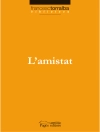Is parents’ power over their children legitimate? And what role does theoretical analysis play when we make such normative evaluations? While this book adds to the growing literature on parents, children, families, and the state, it does so by focusing on one issue, the legitimacy of parents’ power. It also takes seriously the challenge posed by moral pluralism, and considers the role of both theoretical rationality and practical judgement in resolving moral dilemmas associated with parental power.
The primary intended market for this book is advanced undergraduate and postgraduate students and established academics, in particular those with an interest in practical and applied ethics, contemporary political theory, moral theory, social theory, the sociology of childhood, political sociology, social work, and social policy.
Tabella dei contenuti
1 Introduction: philosophy, power, and parents
Part I: Paternalism and its limits
2 Paternalism
3 Caretaker or liberator?
Part II: Conceptual and metholodogical issues
4 Moral dilemmas
5 Children’s agency
6 Parental power
7 Normative legitimacy
Part III: The moral legitimacy of parental power
8 Legitimacy in the political domain and in the family
9 Licensing, monitoring, and training parents
10 Children and the provision of informed consent
11 Sharing lives, shaping values, and voluntary civic education
12 Conclusion
Index
Circa l’autore
Mark Haugaard is Lecturer in Political Theory at the National University of Ireland, Galway












